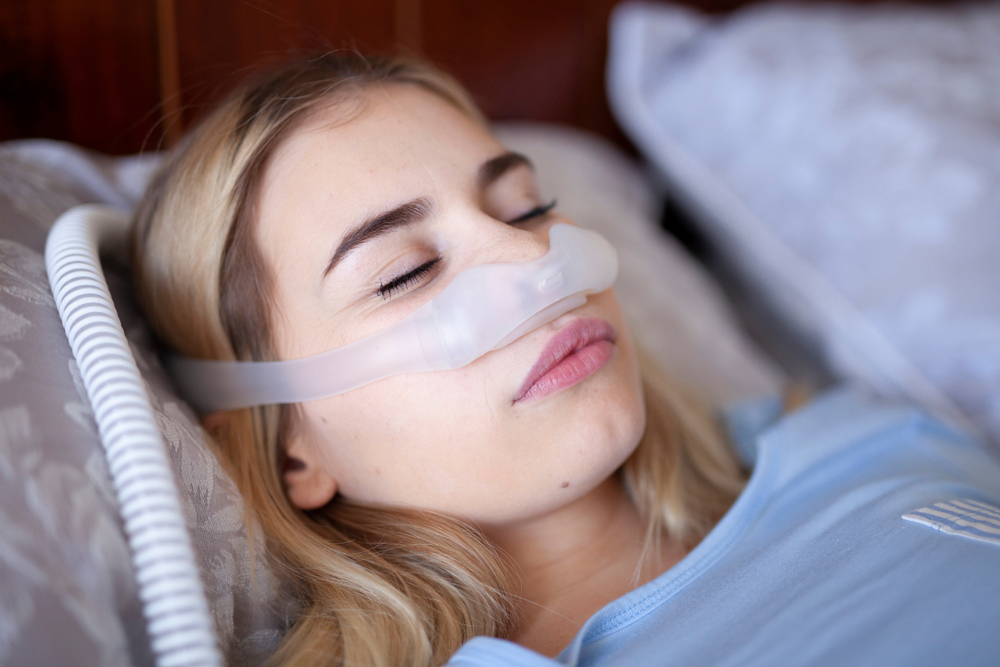On September 6, 2022, the FDA issued a recall regarding certain Philips Respironics devices. Masks used with bilevel positive airway pressures (BiLevel PAP, BiPAP or BPAP) and CPAP machines may pose a serious safety concern to those using the devices. It is estimated that more than 17 million masks are included under this recall.
The masks in the latest Philips recall use magnets to hold the device in place. The magnets can potentially affect people with implanted metallic medical devices or metal objects in their body. The mask magnets could cause movement of certain implanted metallic medical devices, resulting in injury or death. This could affect the person using the mask or someone near the recalled mask, most commonly this includes their spouse or sleeping partner. Implanted metallic medical devices or metallic objects in the body that could present a risk include:
- Pacemakers
- Cardioverter defibrillators
- Metallic stents (such as aneurysm, coronary, tracheobronchial, and biliary)
- Neurostimulators (such as hypoglossal nerve stimulators)
- Magnetic metallic implants, electrodes, and valves placed in upper limbs, torso, neck, or head
- Cerebral spinal fluid shunts (such as ventriculoperitoneal shunt)
- Aneurysm clips
- Embolic coils
- Intracranial aneurysm intravascular flow disruption devices
- Metallic cranial plates, screws, burr hole covers, and bone substitute devices
- Ocular implants
- Certain contact lenses with metal
- Implants to restore hearing or balance that have an implanted magnet (such as cochlear implants, implanted bone conduction hearing devices, and auditory brainstem implants)
- Magnetic denture attachments
- Implantable ports and pumps (such as insulin pumps)
- Metallic gastrointestinal clips
- Certain metallic joint replacements
- Devices labeled as Magnetic Resonance (MR) Unsafe
- Magnetic metallic implants not labeled for MR or not evaluated for safety in a magnetic field
- Metallic splinters in the eye
- Metallic shrapnel in the body
The recalled masks have magnetic headgear clips to hold the BiPAP or CPAP machine in place.The recalled masks include:
- Amara View Full Face Mask
- DreamWisp Nasal Mask
- DreamWear Full Face Mask
- Wisp and Wisp Youth Nasal Mask
- Therapy Mask 3100 NC/SP
As of August 30, 2022, Philips reported 14 serious injuries and zero deaths related to the use of the recalled masks. The reported injuries included pacemaker failure leading to pacemaker replacement, a need for shunt adjustment, resetting of automatic implantable cardioverter defibrillator, arrhythmia, cognitive changes, headaches, change in heart rate (tachycardia, bradycardia), convulsions (seizures), and irregular blood pressure.
What To Do If You Use a Recalled Mask
If you have a recalled mask and you or someone who sleeps near you have an implanted metallic device, stop using the recalled mask immediately. If possible, switch to a non-magnetic mask. Keep the recalled mask at least six inches away from metallic items in the body, medical devices that are affected by magnet fields and implanted metallic medical devices.
Consult your health care team to determine if a different mask can be used, and discuss whether your treatment plan should change as a result of this recall. If you or a loved one experiences any issue related to this recall, seek urgent medical attention. Also, report the problem to the FDA’s MedWatch Voluntary Reporting Form, and contact Philips customer service at 1-800-345-6443 to inquire about additional information regarding non-magnetic masks.
You can continue using the mask, if you or someone near you when using the recalled mask, do not have any of the implanted metallic medical devices or metallic objects in the body listed above.
Philips CPAP Lawsuits and Other Recalls
The mask recall is not the first time Philips Respironics has been involved in a CPAP product recall. In June 2021, Philips CPAP devices were recalled due to polyurethane foam that can degrade and enter the airway of the person using the device. Philips is facing CPAP lawsuits from people who used the recalled devices and developed injuries including cancer and serious respiratory problems.
There are thousands of allegations against Philips related to the June 2021 recall. The CPAP lawsuits filed against Philips Respironics include allegations of negligence, consumer-law violations, products liability, breach of warranties and fraud. These claims are related to the polyurethane foam degrading and off-gassing which can enter the lungs of the person using the device, posing additional health risks, to those using these devices.
Additionally, a product recall of Philips Respironics V60 and V60 Plus ventilators was issued in March 2022. The recall is related to a power issue that may cause ventilators to stop functioning with or without visible or audible alarms. This could cause those using the recalled devices to be without oxygen until the ventilator begins operating again. The ventilators are intended to support patient breathing and are used in hospitals or other institutional settings under the direction of health care professionals.
In January 2022, Philips also recalled V60 and V60 Plus ventilators due to the use of an expired adhesive in the internal components. Should the adhesive fail, a support bracket could loosen. It could then damage the capacitors, which would cause the device to stop providing ventilation to the person using the device leaving the patient oxygen deprived until a new ventilator is attached. The device may not provide an audible warning that there is something wrong with the ventilator - leaving those using these devices at risk of additional health complications.
Those utilizing devices and masks recalled by the FDA and Philips already experience various health challenges, including sleep apnea - a health effect that negatively affects people’s daily lives. Add on these complex product recalls, and those affected may need to explore legal options if injured. Consulting with a product liability attorney with expertise in product recalls can help consumers determine the best path forward to holding those accountable for any injuries from recalled devices.













